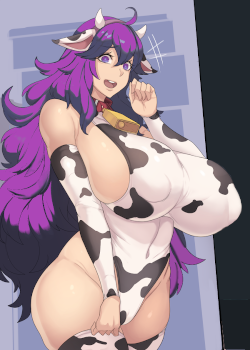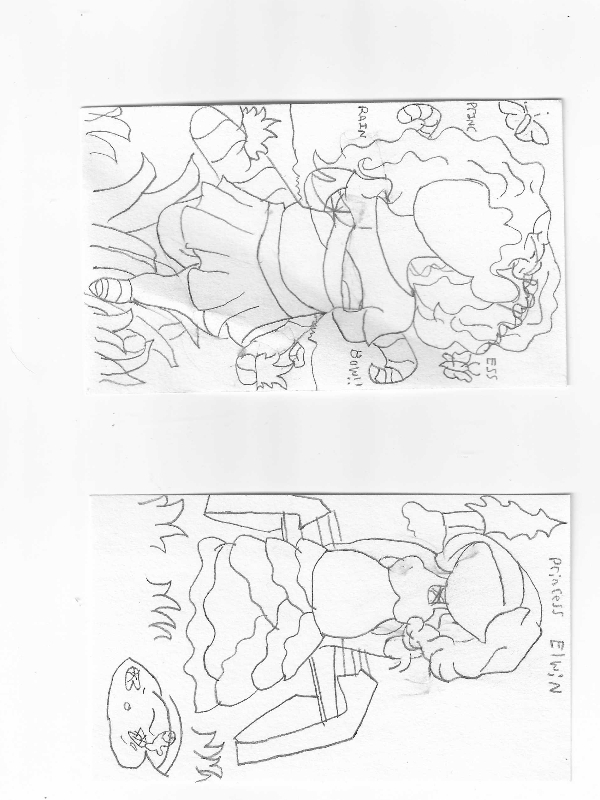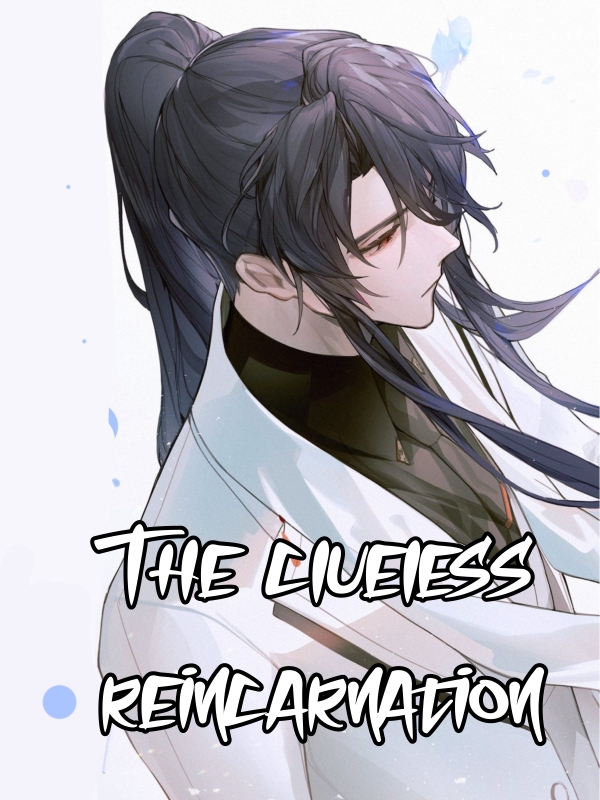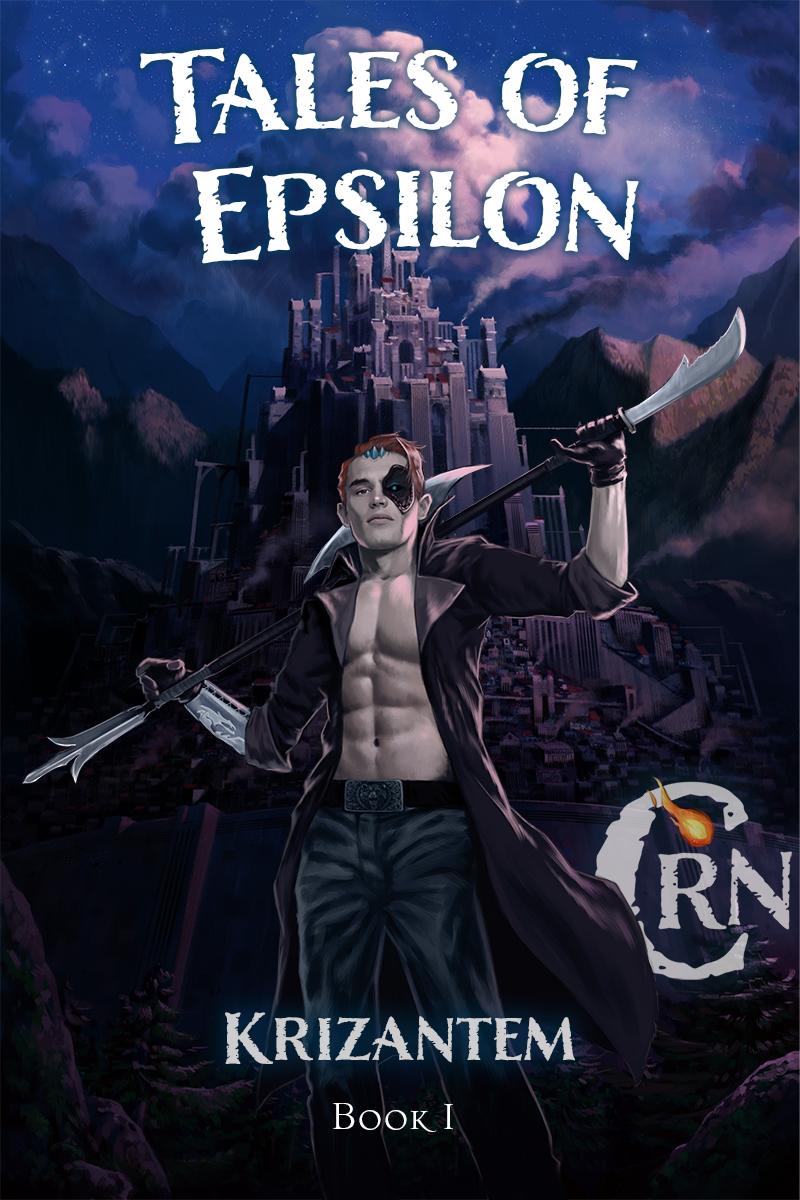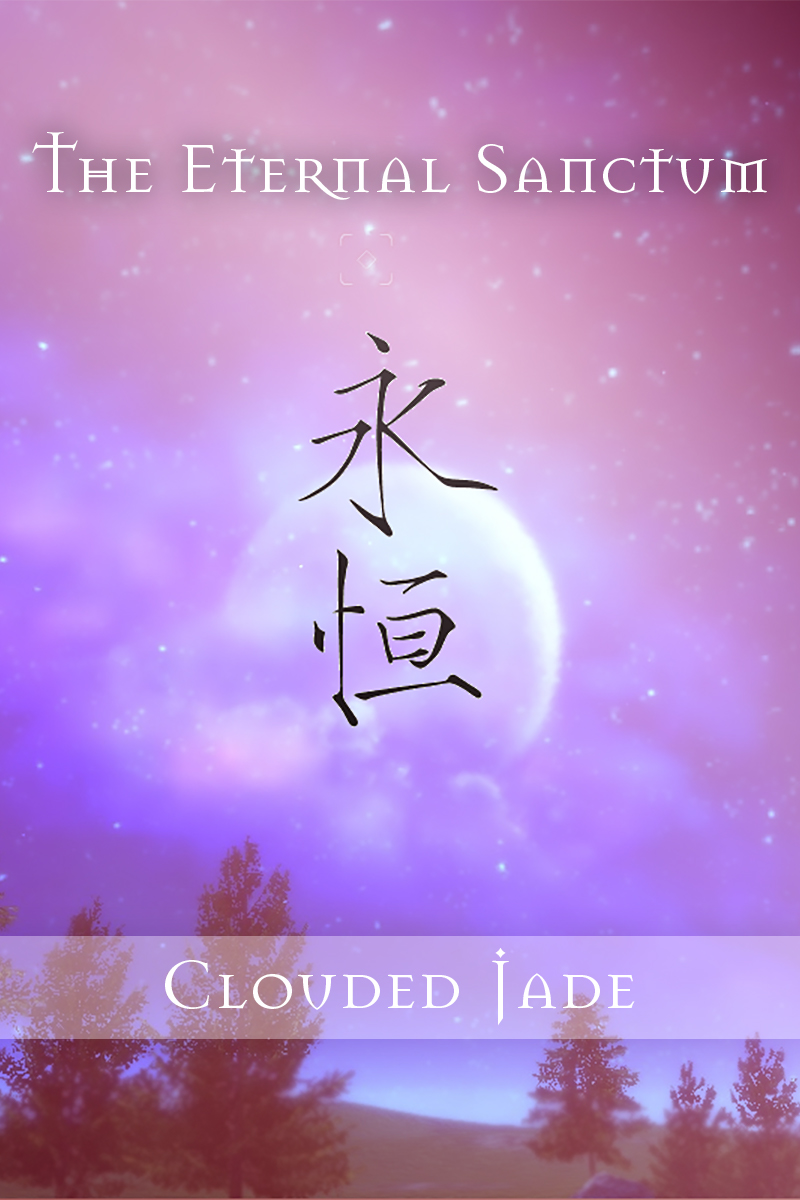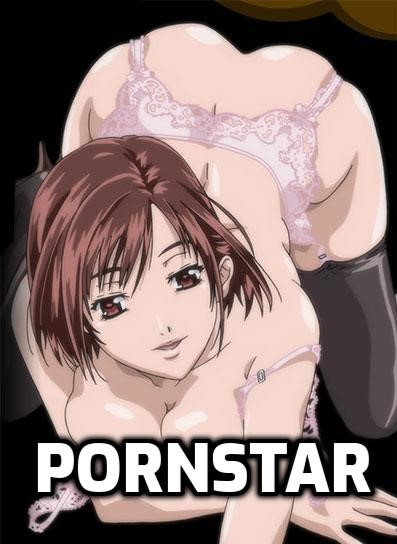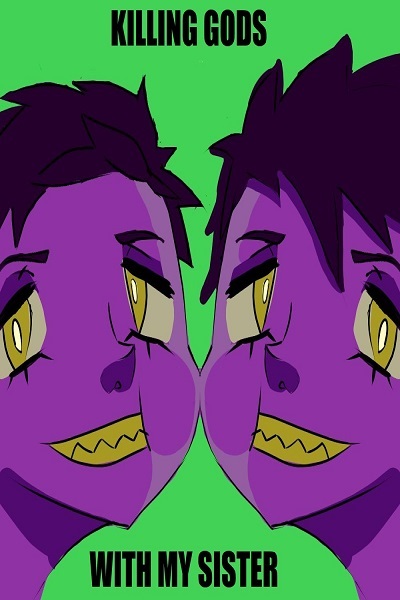“I was once helpless and believed that because I could do no harm, I would do no harm, and I called that moral. I was once afraid of my own potential and called that humble. It was only through the lawless entropy of the frontier and then on the frontlines that I truly came to understand the truth: the power of ideology, faith, and belief. This means holding yourself to a standard that you can only imagine. It means that the whims of your personal sentiment do not discriminate when discerning the righteous from the damned.
But these higher causes, these virtues, these principles, are the enemies of love. Man kills himself for honor; man kills another for justice. Love does the same thing, but I think these are far crueler. When you kill out of principle and not sentiment, you make the most treacherous thing—arbitrary. And I believe the greatest evil you can commit against the Earth, God, and yourself is indifference, as this world was bestowed upon us.”
So I choose to love, to live knowing that I will suffer, because this is the cost of the gift of passion, the gift of love. I refuse to deny my humanity. Principle is what ties us to the divine, not to the image God made us in”
Someplace, somewhere, somehow. In a warm cottage, a man takes solace only because he has a wife, daughter, and son to come home to.
Camila sits there, the mundanity of the day beginning to weigh on her face. Camila’s mom interrupts her idleness with a hand on the shoulder. The warm hearth behind Camilla’s mom casts a great shadow on her heart. Camila was different, skin as pale as the tundra, the blue sky reflecting off it… Veins stretched across her skin like a nebula, eyes as pitch black as the cosmos, nails as hard as a tempered sword, and fangs sharper than a court Jester’s wit. Camila’s mom looks at her with a muted tone of concern on her face. “Camila? Would you like to join us for supper?” Camila turns away as if her heart were laid naked and bare upon her face. “No, you know how I feel about that,” Camila says, her voice shaking as if the very proposition moved the foundation of her being, her same heart collapsing in on itself. A pensive look possesses Camila’s mom”Everybody loves you, Camila, despite the fact that you eat.” Camila interrupts her mom, Laila, in a somber tone as if she were pleading, her voice as dry as the winter air, “Please don’t say it,” she says. The embers from the hearth danced within the still silence. Camila’s mother kisses her on the forehead and leaves. Leaving Camila to eat in solitude and quiet, with each bite of her meal reverberating through Camilla, reminding her of what she is not.
In the cottage’s main room, John, Camila’s younger brother, approaches Camila with uncertainty, but his curiosity overtakes him. “Camila, what are you drawing?” John asks. “It’s a way to water our fields so we don’t have to rely on the whims of nature,” Camila responds, a
—
A look of excitement flashes across Camila’s face. John looks perplexed. “We’re not arbiters or enforcers, so how can we not rely on the whims of nature?” John teases Camila, highlighting the whims of nature in a dramatic tone.
Camila laughs softly. “Well, John, water flows downward; that is a fact. It pulls upwards as we drink water. What if there was something that could imitate that? I was thinking about using the river, but the water level is below the field, and we bathe in it. People have been getting sick. If we can come up with a way to pull the water up from the well constantly, we can both water our fields and have clean drinking water.”
John takes a moment to process everything Camila says, his eyes darting back and forth as he pieces it together. “Why haven’t you presented this to the judge? This would change everything, not just for our village but for the entire fief—no, the entire world.”
Camila laughed, tossing and rolling as if consumed with the madman’s insight. “Easy there, megalomaniac. Let’s try to solve our issues first.” John’s boisterous joy quickly fades as soon as it arrives. Camila’s face shifts back to neutral, as if someone flipped a switch in her.
“I’m not a megalomaniac; I’m just the finest fighter in the village,” John says with false boisterousness.
“Is that what you say after the girls in the village laugh you out of the tavern?” Camila retorts dryly.
“Camila, whenever you’re having fun, it’s like you have a realization and just shut off,” John says cautiously.
“What do you know?” Camila asks rhetorically with a violent hiss, nostrils flaring. John’s eyes grow wide briefly, the dread bubbling up from his bowels, yet it feels like an eternity for Camila. Tears well up in her eyes. “You too, huh?” she whimpers and begins sobbing, interrupted by brief hiccups.
John Grapples with the guilt in his heart “Camila, you know I’d do anything for you.” But John’s compassion quickly turns to anger. “Why do you play this self-pitying game? I don’t know. It’s gone on for so long that it’s as if you like to hate yourself. Any man in his right mind should and would be scared of you. You are not harmless. Perhaps it’s time you embraced that fact. Accept it or forever be at war with yourself. The other boys my age and I have training in the morning, so come watch or don’t. It’s of no consequence to me because when it’s all said and done, you’re still my sister, and my blood flows through you.” John walks away, leaving Camila to her own devices.
While falling asleep, Camila’s beams of moonshine illuminate her pale blue skin against the brown fur blanket. She ponders her brother’s words: “My brother only wants what’s best for me. I’ve never really seen what he does. I’ve never even asked or displayed any curiosity, but he’s always asking me what I’m doing. w…a… I…t….” Camila drifts off to sleep as the fog comes over her consciousness.
Camila’s peaceful slumber is broken by cold water on her face. She wakes up, looking around, as up is down and left is right. She tries to get her bearings.
“Welcome back to the earthly plane, dear sis,” John says. Camila stares at John as if she can see him, but she can’t; the idea of John pulling a prank on her as if they were children is just confusing.John looks at Camila, A mischievous grin stretched across his face . “Yes, I know… but I couldn’t allow you to run away, dear sister. Here are some of my old work clothes, and eat breakfast. You’re going to need it.”
“Christopheles, you will become knighted with this action. A test of loyalty,” the arbiter states. “You must understand the burden of being the wall that defends our system of beliefs from those who would impose their will on the crown.”
The arbiter continues, “Explain why these peasants who rebelled against their lord shouldn’t be killed.” The crowd stares at Christopheles with looks of anticipation and confusion. Christopheles looks at the crowd, then to the lord, and finally to the peasants. “I can’t decide,” Christopheles says.
The arbiter nods at Christopheles and callously states, “Well then,” before snapping his fingers. A column of flame erupts, engulfing the peasants, the lord, and his family. Christopheles’ eyes go wide, and he falls to his knees.
“If you cannot take responsibility to both save life by taking another and take a life by saving another, if you lack the will to act, then you lack the will to bear the burden that being commissar entails,” the arbiter says in a monotonous tone. The common folk and the nobles begin casting stones at Christopheles.
Christopheles looks at the arbiters and the people in the crowd; scorn radiates from his eyes. Fire in his sternum fills him with frenzy, but his composure tempers his fury. He stands up tall before what these people revere as deities. “It is not the peasants or the lord that should have died; it is you,” Christopheles utters, the weight of his words as heavy as the will of the people behind him.
The arbiter tilts his head. In his usual tone, he asks, “How so?”
Christopheles responds, “Is the heart of the people not a derivative of the ruler’s deficits! You people hermitize yourselves, deprive yourselves of life, view it as the greatest evil to indulge in, and yet you dictate the lives of those who love and live. These people are deprived of life, so when you tax them and yet bring neither the nobles nor the peasants any solace in their security, they rebel and condemn each other, but not the people who set the foundation for them. You had everything so you thought it fit to not want. They had nothing so they thought it fit to want. The people will always represent the deficits of the rulers, as a heart desires what it lacks. As for the nobles, they are a rope strung between polarities and priorities, preventing the flow of causality from falling apart. I believe you played a role in this too, since this fief is under your protection. The responsibility falls on you as well.”
A moment passes. The light begins to bend and warp around the arbiter. The arbiter’s hand reaches for his dagger against his will, thrusting it into his jugular. Blood rains down, splattering on the ground, a requiem for the lives that were taken. One arbiter steps forward, the sun gleaming off her gold beads into Christopheles’ eyes. Her animosity and loss manifest as a single tear on the ground. She looks up at Christopheles and says, “In time, you will understand how and why… Seize him.”
—
Camilia heaves the cold air that grates at her lungs and throat as she plops herself on the ground. Her respite is interrupted by the sound of her name being yelled. Camilia perks up her head and darts around, looking perplexed. She spots a boy running down the village towards where she is sitting.
“Camilia, the judge wishes to see you; he says it’s important,” the boy says between heavy breaths.
On her way to the judge’s residence, she ponders on what he could possibly want; her mind comes up blank. When she arrives at the judge’s house, she’s met by her mother and guards. Camilia glances at the judge, then to the guards, then to her mother, and repeats it all again.
“Mother? What’s happening?” Camilia asks, her voice tinged with confusion and concern. Her mother turns away, and Camilia knows what her mother is feeling but she can’t understand why.
The judge’s voice cuts through the silence. “Camilia, what is this?” The judge asks, holding up Camilia’s drawings and notes.
Camilia looks up with confusion. “It’s a water pump,” she replies.
The judge folds his hands behind his back. “And what does this water pump do, Camilia?”
Camilia’s eyes light up with excitement. “It moves water up from the ground. I was going to combine it with the water wheel so that it would move water by itself.”
The judge takes a good look at Camilia and says, “Very well then.” His heart pangs, but he cannot fight off an endearing smile, a smile sprung from paternal affection. She will never know who he is or what he did for her.
Camilia grins and giggles, her unkempt hair as unruly as ever. “Why are you looking at me like that?” she asks.
“All the people in the village are my children, regardless of their strange inclinations or origins,” the judge replies with a chuckle. “How is the training with your brother progressing?”
Camilia puts her hands on her hips and postures up. “I’m on the path to becoming the finest fighter in the village,” she says proudly.
“Oh lord, I see you’ve absorbed some of your brother’s constitution during the time you’ve spent with him,” the judge says with a smile before taking a pensive look. “Camilia, what do you want to do with your life?” he asks, uncertainty in his voice.
Camilia’s eyes become glazed. “I don’t know,” she stutters.
“Have you ever thought of becoming a general or even a magus?” the judge suggests.
Camilia looks at the judge with confusion. “How would I pay for the education?” she asks.
The judge smiles. “Well, Camilia, with this you may even be able to become a noblewoman.”
Camilia pauses for a second. “Oh… Ohhh… Oh… What about my brother and my mother?”
“They are happy for you and they are going to help you produce it,” the judge reassures her.
Camilia processes what the judge says, freezes, a tear fights up her tear ducts, and a frenzy of warmth fills her heart. She panics and clutches her sternum. Camilia thinks for a second and realizes… it’s the love her family has for her.
In a dank, decrepit cell with mildew lining the corners and rats scurrying about, a prisoner slouches against the corner of her cell. She is broken, betrayed, and anemic. The light slowly inches towards her chamber. She waits with anticipation so pungent it chokes her. The footsteps echo within the desolate expanse of her mind, so deprived of stimulation. The prisoner thinks to herself, “Have they finally come to execute me?”
The footsteps grow louder, and the doors screech open. A man stands there, his posture radiating sternness. ” Clotho Borales, your audience is demanded by the clergy.” Clotho squints, trying to inquire why, but she can’t; her throat is as coarse as sandpaper. The man looks down at Clotho. He raises his hood as her eyes adjust to the light. “What has become of you, Clotho?” A tear comes down the man’s face, and he carries Clotho out from the cellar. He gives her water and puts her on his back, carrying her out of the cellar as she nods off to sleep.
Clotho wakes up in a room with ornate curtains and carved gold with elaborate engravings decorating the edges and corners of every item in the room. She thinks to herself, “Somebody wants something from me.” Once again, she hears footsteps, this time they seem confident. She notices the time between the sounds of the steps and thinks, “This person seems to be walking with some purpose—a sense of urgency, probably a servant or a high-ranking noble.” The door opens, and a high-ranking noble with a silver-lined cloak and extravagant attire appears, with almond-colored hair.
The noble looks at Clotho. “You served King Raphael, correct?” Clotho nods. “It has been brought to my attention by my sources within the court that there is a conspiracy against the crown by the clergy. This weighs on my mind heavily because I know what this empire, built upon the back of your deeds, did to you. And yet I dare ask this of you: if you would obligate yourself to the crown—no, the people—once more, I would give you my vessel. I am but a bastard and have no achievements to my name, nor strength or intelligence like my brothers.”
Clotho musters up a whisper. “Yet it seems your soul has no less vitality, no less essence. I will not take your vessel, child. It is the Great Mother’s gift to you and not yours to give.” Clotho smiles warmly. “My child, you need not graft my soul to your body to bestow my divine spark upon you.” The prince smiles pleasantly. “Good answer It was never necessary to begin with” the prince remarks . There’s a procedure that grafts the soul of a person to a homunculus. you will be freeing yourself and damning yourself to a seemingly eternal existence on the earthly plain you will never see the weight of your deeds not because you will not be a witness because you will be detached from the mother and give yourself over to the father and you will return to her when you find your heart once more” an uncharacteristic serious tone possess the prince. “Alternatively I will allow you to live out your days in peace in this very castle but know you damn us all”l clotho finally musters up the strength to speak over here decrepit state “I will aid you” She states, her resolve set


